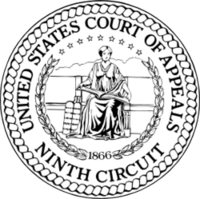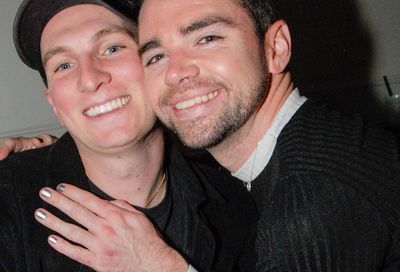Prop 8 Proponents: Ninth Circuit Was Wrong, Should Reconsider Case
The proponents of Proposition 8 have filed the necessary paperwork today asking the U.S. Court of Appeals for the Ninth Circuit to reconsider the three-judge panel’s decision on Feb. 7 in Perry v. Brown that Proposition 8 is unconstitutional.
The lead attorney for the proponents of Proposition 8 told Metro Weekly earlier today that they would be filing such a motion. After the judges receiving a full briefing from the parties as to whether the matter should be reheard, all active circuit judges will vote as to whether an en banc rehearing should be held.
If a majority vote in the affirmative, the chief judge of the circuit, Alex Kozinski, and 10 other randomly selected circuit judges will hear the appeal.
The move almost guarantees that the U.S. Supreme Court will not consider the case before this November’s presidential election.
 In the summary of the argument filed today seeking en banc review, the lawyers for the proponents state:
In the summary of the argument filed today seeking en banc review, the lawyers for the proponents state:
The panel majority erred in breaking with the uniform and binding precedent upholding the constitutionality of laws adopting the traditional definition of marriage, and the Court, sitting en banc, should rehear this profoundly important case.
The primary argument brought forth by the proponents in today’s filing is that Romer v. Evans, the case used by the three-judge panel to hold that Proposition 8 is unconstitutional, was misapplied here.
The panel majority concluded that the Supreme Court’s decision in Romer v. Evans directly “governs” and “controls” this case because it struck down a “remarkably similar” constitutional amendment—Colorado’s Amendment 2. This conclusion, however, rests on a patently implausible reading of Romer.
Specifically, the proponents argue that the “root of the panel majority’s error” was its determination that the timing of the enactment of the provisions — Amendment 2 in Colorado and Proposition 8 in California — was relevant to the provisions’ constitutionality. The panel opinion found it relevant that the ability of same-sex couples to marry in California was taken away by the enactment of Proposition 8. Of that, today the proponents argue:
[I]n declaring a state constitutional right to same-sex marriage in the Marriage Cases, the California Supreme Court not only overturned the statutory will of the People in Proposition 22, it also refused to defer its decision until the constitutional will of the People could be expressed on Proposition 8 at the ballot. And that decision, according to the panel majority in this case, rendered the will of the People irrelevant in any event; for once the California Supreme Court redefined marriage to include same-sex couples, the People of California were powerless, as a matter of federal constitutional law, to exercise their reserved right to [amend their state constitution.]
Then, the proponents argue: “Putting aside the red herring of its timing, it is plain that Proposition 8 differs sharply from Amendment 2 in every material respect.” Writing about the narrow scope of Proposition 8, the lawyers for the proponents write:
The panel majority, however, turns Proposition 8’s virtue into its vice, reasoning that its narrowness “makes it even more suspect” than Amendment 2. This assertion simply cannot be reconciled with Romer. A critical part of the Romer Court’s reasoning was that Amendment 2’s “sheer breadth is so discontinuous with the reasons offered for it that the amendment seems inexplicable by anything but animus toward the class that it affects.”
Later they add: “Proposition 8 does not single out a ‘named class’ for disparate treatment. Rather, it simply preserves the definition of marriage that has prevailed throughout human history.”
In a streak of populism, the proponents state, “To its credit, the panel was unwilling to join the Plaintiffs and the district court in defaming the People of California by attributing their support for traditional marriage to “a bare … desire to harm a politically unpopular group,'” one of the holdings of the Supreme Court about Amendment 2 in Romer.
The proponents’ lawyers go on to address how they view the panel opinion as ignoring certain Supreme Court precedent that they view as contrary to the Feb. 7 decision, including rulings on whether states’ decisions to “do ‘more’ than the Fourteenth Amendment requires” can later be rescinded and whether the “traditional definition of marriage” as between one man and one woman is constitutional.
Additionally, the proponents argue that the panel, like U.S. District Court Judge Vaughn Walker below, was wrong to find that Proposition 8 lacked a rational basis — from “responsible procreation” or “childbearing” to “proceeding cautiously when considering a fundamental change to the very definition of a vitally important social institution.”
Finally, the proponents continued their quest to have Walker’s trial court decision vacated because, as they argue today:
Unbeknownst to the parties, at all times while presiding over and entering judgment in this case, former Judge Walker, like Plaintiffs, was a “resident[] of California … involved in [a] long-term … relationship with [an] individual[] of the same sex.”
They argue: “Judge Walker effectively conferred upon himself and his partner the right to marry.”
Other parties now will have time to respond to today’s filing.
READ the proponents’ filing: ProponentsEnBanc.pdf
Support Metro Weekly’s Journalism
These are challenging times for news organizations. And yet it’s crucial we stay active and provide vital resources and information to both our local readers and the world. So won’t you please take a moment and consider supporting Metro Weekly with a membership? For as little as $5 a month, you can help ensure Metro Weekly magazine and MetroWeekly.com remain free, viable resources as we provide the best, most diverse, culturally-resonant LGBTQ coverage in both the D.C. region and around the world. Memberships come with exclusive perks and discounts, your own personal digital delivery of each week’s magazine (and an archive), access to our Member's Lounge when it launches this fall, and exclusive members-only items like Metro Weekly Membership Mugs and Tote Bags! Check out all our membership levels here and please join us today!



















